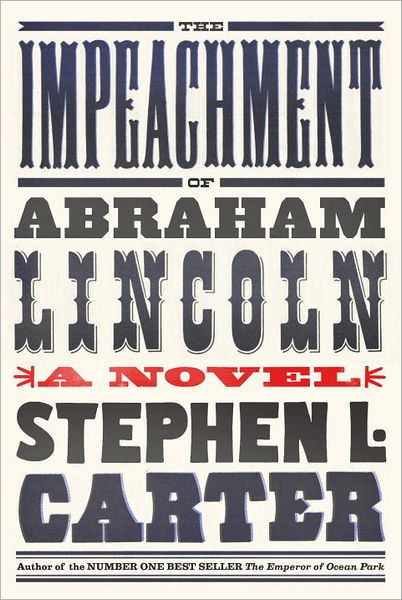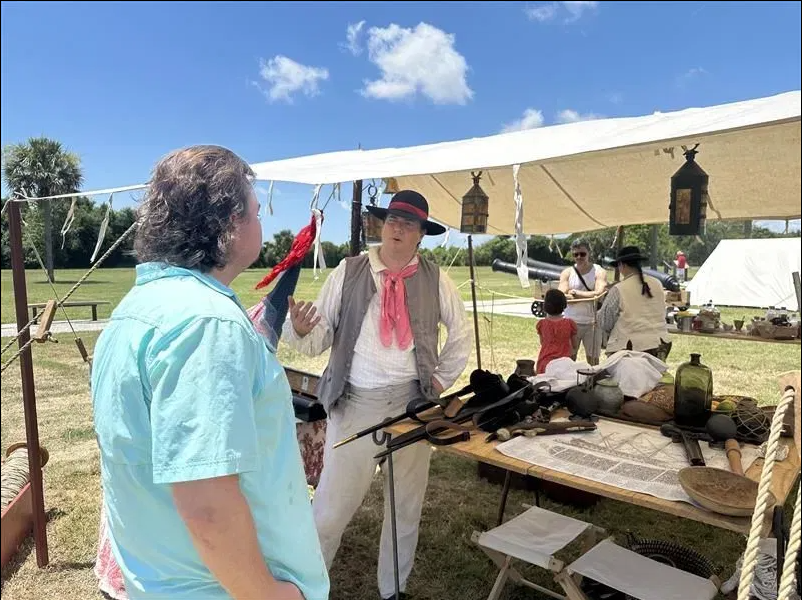The Impeachment of Abraham Lincoln
By Stephen L. Carter.
Alfred A. Knopf, 516 pp., $26.95.
There’s an increasingly popular sub-genre in fiction: historical what-ifs.
What if the American Colonies stayed in the British empire? What if the United States stayed out of World War II?
The Civil War era is prime ground for this sort of treatment. Sometimes the tales are ridiculous — Abe Lincoln fighting vampires? Come on, even in a fantasy, you’ve got to keep it real.
Then there’s a what-if so plausible and well-written, you nearly forget it’s a novel. Stephen L. Carter achieves this with “The Impeachment of Abraham Lincoln.”
It is 1867, two years after the end of the war. Lincoln survived his encounter with the assassin John Wilkes Booth but one of Booth’s co-conspirators was able to take out Vice President Andrew Johnson. The Radical Republicans in Congress, who demand protection and full civil rights for former slaves, still regard the former Confederate states as conquered territory and detest Lincoln’s lack of malice toward Southern whites — he wants “to let ’em up easy.” So the Radicals try to remove him from office, much as they tried to oust Johnson in reality.
Lincoln’s legal defense team is made up of white men, as you’d predict in this era, save for 21-year-old Abigail Canner, a graduate of Oberlin, an Ohio college that was a pioneer in integration. She’s not sure why she’s on the team — is she a token black or are there deeper reasons for her appointment? Because her family had been freed decades earlier, she’s never been a slave, and she expects to be successful as a lawyer. Despite the racial prejudice she encounters, she proves to be the smartest person helping defend Lincoln. This serves her well, as the case becomes a murder mystery with far-reaching conspiracies.
In most of his previous four novels, Carter has focused on affluent African-Americans in contemporary society. By giving the fictional Abigail the starring role, he continues this theme, as he says in his afterword: “Our shared notion that the entire darker nation in the middle years of the nineteenth century was just out of slavery and grindingly poor is the sort of racist nonsense that continues nowadays to provide a peculiar comfort to black and white alike. Although history has little to say about them, there were indeed a handful of wealthy black families in America at this time … Moreover, there were at that time many black families in what we might now think of as the middle class.”
Many of the characters in “The Impeachment of Abraham Lincoln” are real figures from history, doing what you’d expect had history taken this fork in the road. The most striking is Dan Sickles, the former Union general whose impetuosity at the Battle of Gettysburg cost him a leg and nearly lost the battle for the North. He’s a rogue but at least he’s loyal to Lincoln.
The only character who doesn’t ring true is the fictional Jonathan Hilliman, a white law clerk who helps Abigail and begins to fall in love with her. He’s such a callow innocent that it’s difficult to believe he had been a Union officer during some of the worst combat of the Civil War.
And what of Lincoln? Carter usually keeps him off-stage, but when he appears, he shows why he’s considered the greatest president. A good man who “laughs the way lesser men drink,” he’s ruthless in defense of the Union. “He was struggling, as he had during the war, between the need to follow the strictures of the Constitution and the need to prevail.” Lincoln is smart — smart enough to finally see that Abigail is an equal.
Carter gives respect to Lincoln’s foes in Congress. The Radical Republicans feared a gentle Northern policy toward the defeated white Southerners would mean the re-subjugation of blacks. That’s essentially what happened in reality. The Confederate whites lost the war but won much of what they wanted at the end of Reconstruction. Yet if Lincoln or Johnson had been draconian toward Southern whites after Appomattox, would there have been a second Civil War? And this time a guerrilla conflict impossible to win? Carter doesn’t provide any easy answers.
When he’s not producing novels, Carter is a law professor at Yale who’s written scholarly works on politics and society. One hopes his students turn out like Lincoln, or Abigail Canner.
Conrad Bibens is a business wire and copy editor at the Houston Chronicle.



